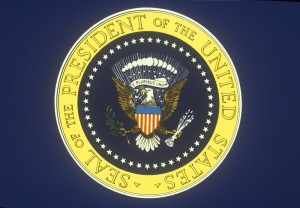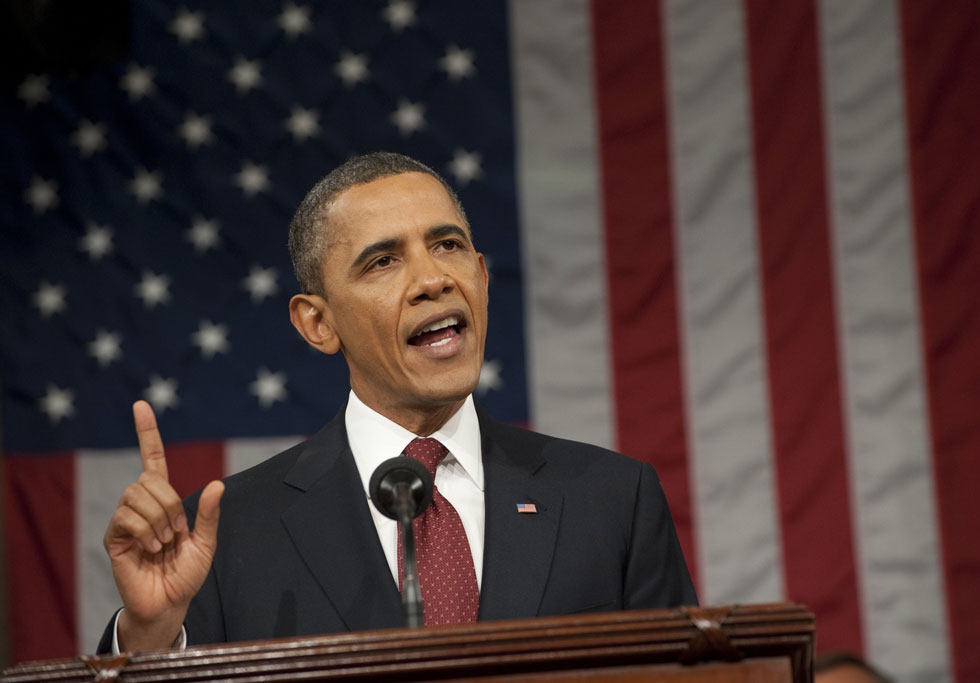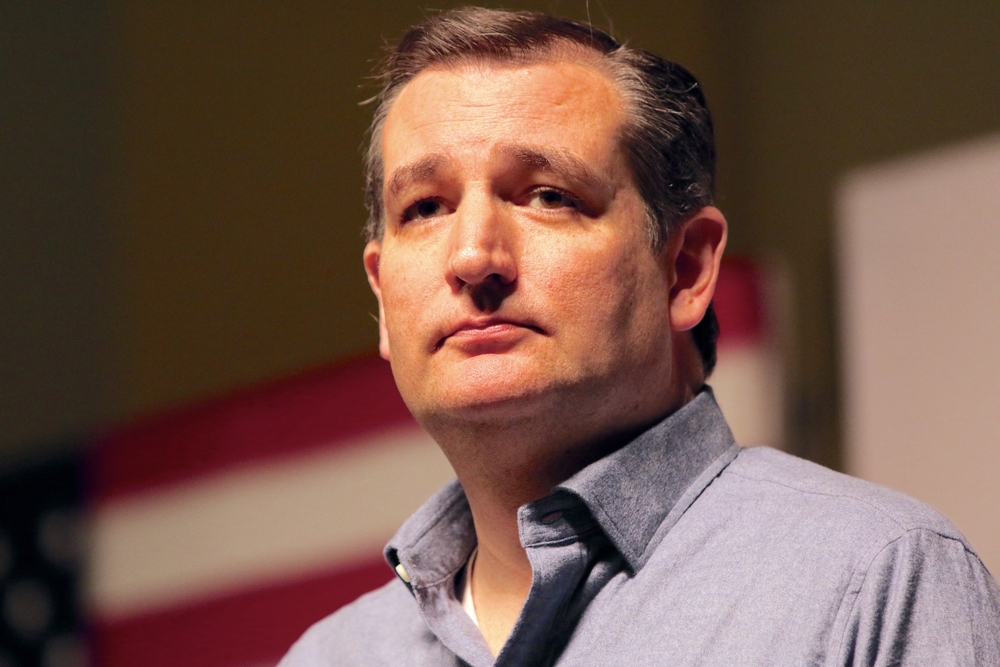
Big Data and the Race To Be President

(Joseph Sohm/Shutterstock.com)
The U.S. presidential election is nine months away, and the race is still wide open. Just about anything could happen between now and November 8, and probably will. But one thing is clear: The winner will have a very good big data analytics strategy.
Americans got their first taste of how big data analytics and social media could impact a political race in 2008, when Barack Obama’s campaign team wielded the combination to great effect. Four years later the Obama campaign refined its approach, and used the system (codenamed Narwhal) to win a much closer race against Mitt Romney. The Republican challenger had a big data strategy, but the technology didn’t pan out as expected. In fact, the system (codenamed Orca) crashed on Election Day, according to the Washington Post.
This year, each presidential hopeful is aware of the importance of having an effective data analytics strategy, and all the data science and IT expertise that entails. In that respect, one could argue that big data will be less of a factor than in 2008 or 2012, when it was still fairly new and novel. But that would overlook differences in the quality of the approaches.
EMC‘s Bill Schmarzo, who is following the use of big data in the presidential election, sees big data playing a bigger role in the election compared to any previous years. It all comes down to effective targeting and listening to the constituents, he says
“The candidate who has a better grasp of who their target constituents are, who the strong ones and who the fence sitters are, and is able to craft the message and speeches to win the people over–I think big data drives all of that,” Schmarzo tells Datanami.

President Obama set the standard for data analytics in elections with his 2008 and 2012 campaigns.
Much of the big data in the election cycle will go towards leveraging Twitter, Facebook, Instagram, and other popular social networks. The winning candidate will be a passive listener to social media and use it strategically to get in front of people’s changing stances on hot-button topics. But the winner will also use social media tactically, to help with registration drives and to get the vote out on Election Day.
“I think Obama really set the standard for this, when they started mining all this wealth of social media data out there to try to figure out what people’s interests and passions are,” says Schmarzo, who’s been called the Dean of Big Data. “But there’s a lot more data to ingest [compared to 2008 and 2012] and we have better tools. If I was a candidate, I’d have a data lake underneath this, all my data sitting there, so my data science team can start doing that clustering and segmentation work.”
While Schmarzo doesn’t have any inside information about the candidate’s individual big data strategies (they’re held very closely to the vest), he expects the campaigns to employ a lot of the same techniques and strategies that are being used in today’s cutting-edge marketing campaigns. That means using all available information to create micro-segments of small groups of voters, or what Schmarzo calls “The Internet of One.”
“It’s all about individual behavioral analytics,” he continues. “You talk about interests, passions, affiliations, and associations. That’s what I can get out of their social media. If I have that kind of information, now all of a sudden I can take a laser-like approach to make sure I’m reaching the right people with the right message and carrying that message to a larger group of people.”

Social media will play a big part in the 2016 election
One of the firms at the leading edge of big data in politics is Cambridge Analytica. According to a recent story in AdAge, the UK-based firm, which has done work for the campaigns of Ted Cruz and Ben Carson, uses responses from online surveys that it conducts to build psychological models of every American voter along five traits: openness, conscientiousness, extraversion, agreeableness and neuroticism.
As of December, the Cruz campaign had spent $3 million on services from Cambridge Analytica, which has supplied two data scientists who have been embedded into the Cruz campaign. It appears to be money well-spent, as the work done by Cambridge Analytica is widely viewed as playing an important role in Cruz’s victory in Iowa last week. (Cruz also heavily invested in traditional campaigning techniques in Iowa.)
According to Cruz’s campaign manager, Jeff Roe, data is providing the Cruz campaign a competitive advantage in a year when the old rules seem to no longer apply. “There is no handbook for this,” Roe told the Washington Post in December. “The conventional wisdom has been destroyed. What you can do is rely on data.”
But an indiscriminate reliance on big data will not be enough to get into the White House. Republican candidates especially will be careful not to make the same mistakes that Romney made four years ago, when his internal polling was skewed, leading the campaign to poorly allocate resources.
The winning candidate will combine common sense with big data, because at the end of the day, political calculus is not linear, and the electoral college demands that candidates invest intelligently. But anything the presidential hopefuls can do to identify undecided voters in swing states will be put to use.
“We all know that California is going to vote Democratic and Texas is going to vote Republican. Ignore those states,” EMC’s Schmarzo says. “But the states like Ohio and Florida and Iowa and Oregon–those are the ones where the data scientists really have to figure out who are the people in those states that I can swing over to me, and get very targeted.”

Ted Cruz’s campaign has aggressively pursued big data analytics for competitive advantage ( Rich Koele/Shutterstock.com)
If the candidate is smart, they’ll listen to their constituents instead of talking all the time. That may be harder for some candidates to do than others.
“The successful candidates are going to be as much of a follower as a leader,” Schmarzo predicts. “They’re going to have to follow a bunch of people. Big data can play a huge role in that because it gives you the ability to listen like we could never listen before. We can hear every individual and group speak and understand what the message is, what the positons are, and how best do I serve it.”
Politicians may let the algorithms do some of the listening. An IBM (NYSE: IBM) business partner is rolling out a Watson-based service called Adaptive Listening’ (AL) that’s designed to help organizations automatically capture and act on social media signals. Developed by MutualMind, the cloud-based service is based on the Watson Personality Insights API and could be used to help campaigns automatically capture and respond to social media posts of a political nature.
 According to a 2015 Forbes article, IBM is working with MutualMind to adapt the service for political campaigns. “Watson could proactively and intelligently test, measure, and optimize digital content, ads, website pages even a series of messaging to a small group to efficiently maximize voter response,” writes Forbes contributor Mark Fidelman. “Once the most effective content was determined, Watson and the AL solution could be used to sway undecided voters and previous non-voters through an optimized content campaign.”
According to a 2015 Forbes article, IBM is working with MutualMind to adapt the service for political campaigns. “Watson could proactively and intelligently test, measure, and optimize digital content, ads, website pages even a series of messaging to a small group to efficiently maximize voter response,” writes Forbes contributor Mark Fidelman. “Once the most effective content was determined, Watson and the AL solution could be used to sway undecided voters and previous non-voters through an optimized content campaign.”
It’s clear that what Obama did with big data and social media analytics in 2008 and 2012 were game changing and created a new baseline for national and state-wide campaigns. But the game is changing very fast now, and it’s set to have a big impact on our democratic processes, for better or for worse.
Related Items:
How Data Analytics Shaped Election Day 2014
Big Data Analytics Give Electoral Edge
How Data Analytics is Shifting Politics



























